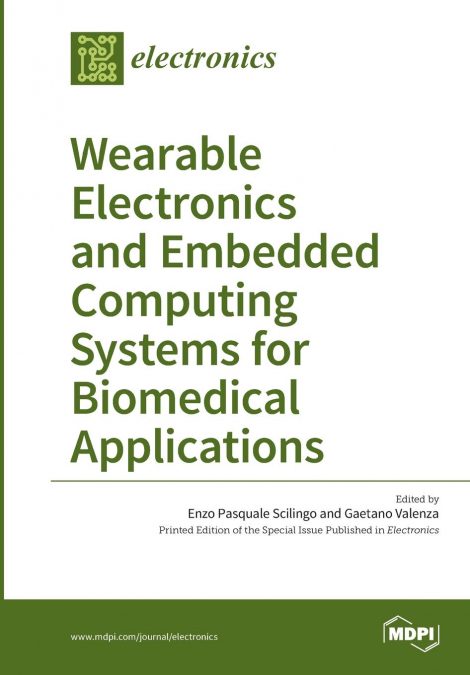
Wearable electronics and embedded computing systems have been receiving a great deal of interest over the last two decades in research and commercial fields, with a special focus on biomedical applications. The key benefits introduced by these systems include their small size, lightweight, low-power consumption, and, of course, wearability. Major human-centered applications are related to medicine, enabling outpatient care and enhancing the quality of life for chronic disease patients, maybe preventing unnecessary hospitalization. These technological devices can indeed be cost effective and provide doctors with more accurate and reliable data.Exemplary engineering input has focused on developing innovative sensing platforms, adaptable to different environments and user needs, smart textile technology, miniaturized electronics and sensors, energy harvesting, wireless body area networks, and so on. This has provided the possibility of gathering information on several activities, such as during daily activities or sleep, during specific tasks, at home, in the lab, and in the clinic, in the form of physiological signals.This book includes cutting-edge research articles, as well as reviews describing and assessing wearable devices, or proposing novel wearable sensors, computational efficient algorithms for physiological signal processing through embedded computing, collection of environmental/behavioral/psychological data, data fusion, detection and quantification of symptoms, decision support for medical doctors, and communication between patient and doctor.